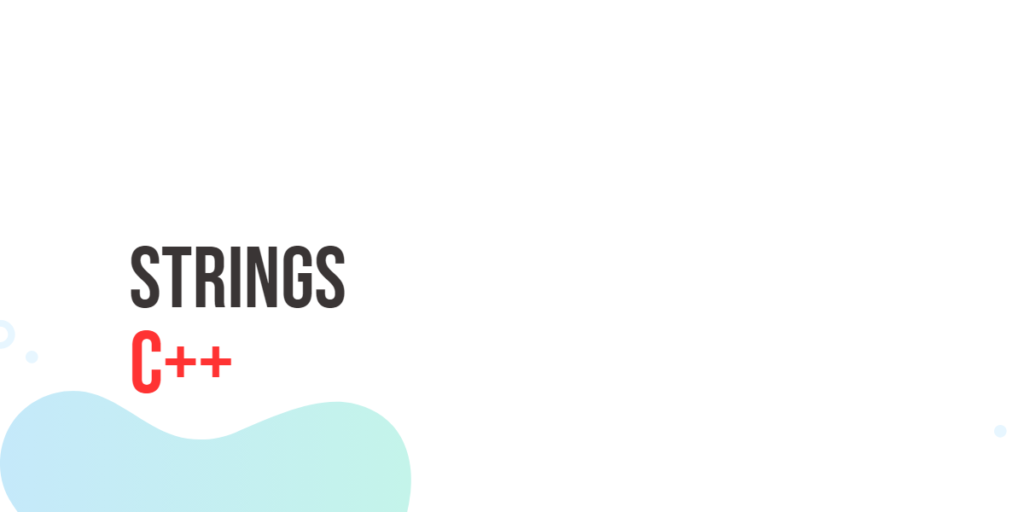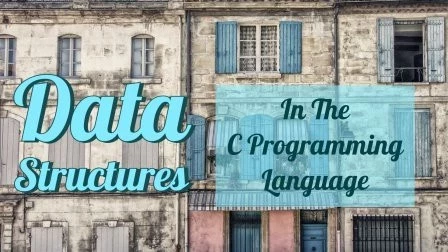C++ is a versatile and powerful programming language widely used for various applications, ranging from system-level programming to game development. One essential aspect of C++ programming is the manipulation and handling of strings. Strings are fundamental in many applications, from simple text processing to complex data manipulation. In this article, we’ll explore C++ strings, understanding their basics, and operations.

with hands-on learning.
get the skills and confidence to land your next move.
Introduction to C++ Strings
In C++, a string is a sequence of characters represented as an array of characters. Unlike other programming languages, C++ offers two primary ways to handle strings: the traditional C-style strings and the more user-friendly C++ Standard Library strings. The std::string class simplifies string manipulation and management. The std::string class is part of the C++ Standard Template Library (STL) and offers a rich set of functions for working with strings.
C-Style Strings
C-style strings are arrays of characters terminated by a null character (‘\0’). Let’s look at a simple example:
#include <iostream>
#include <cstring>
int main() {
const char* cStyleString = "Hello, C++!";
std::cout << cStyleString << std::endl;
// Using C string functions
char buffer[20];
// Copy cStyleString to buffer
strcpy(buffer, cStyleString);
// Append ' Welcome!' to buffer
strcat(buffer, " Welcome!");
std::cout << buffer << std::endl;
return 0;
}Here, we declare a C-style string and manipulate it using functions like strcpy and strcat. However, working with C-style strings can be error-prone due to manual memory management and potential buffer overflows.
C++ Standard Library Strings
C++ introduced the std::string class in the Standard Library, providing a safer and more convenient way to handle strings. Let’s rewrite the previous example using std::string:
#include <iostream>
#include <string>
int main() {
// Creating an empty string
std::string emptyString;
// Initializing a string with a value
std::string greeting{"Hello, C++ Strings!"};
// Displaying the strings
std::cout << "Empty String: " << emptyString << std::endl;
std::cout << "Greeting: " << greeting << std::endl;
return 0;
}With std::string, the memory management is handled automatically, reducing the risk of errors.
Basic Operations with C++ Strings
Now that we’ve introduced the two main string types, let’s dive into the basic operations that can be performed with C++ strings.
Accessing Individual Characters
You can access individual characters in a string using the array notation or the std::string at method:
#include <iostream>
#include <string>
int main() {
std::string message{"C++ is awesome!"};
// Using array notation
char firstChar = message[0];
// Using the at method
char secondChar = message.at(1);
// Displaying the characters
std::cout << "First Character: " << firstChar << std::endl;
std::cout << "Second Character: " << secondChar << std::endl;
return 0;
}Concatenation
Concatenation is the process of combining two strings. In C++, this can be achieved using the + operator for std::string or the append method:
#include <iostream>
#include <string>
int main() {
std::string firstName{"John"};
std::string lastName{"Doe"};
// Using the + operator
std::string fullName = firstName + " " + lastName;
// Using the append method
std::string fullNameAppend = firstName;
fullNameAppend.append(" ").append(lastName);
// Displaying the results
std::cout << "Full Name (using +): " << fullName << std::endl;
std::cout << "Full Name (using append): " << fullNameAppend << std::endl;
return 0;
}For C-style strings, the strcat function is commonly used:
#include <iostream>
#include <cstring>
int main() {
const char* firstString = "Hello, ";
const char* secondString = "C++!";
char combinedString[20];
// Copy firstString to combinedString
strcpy(combinedString, firstString);
// Append secondString to combinedString
strcat(combinedString, secondString);
std::cout << combinedString << std::endl;
return 0;
}String Length
Determining the length of a string is a common operation. For C-style strings, the strlen function is used:
#include <iostream>
#include <cstring>
int main() {
const char* myString = "Hello, C++!";
std::cout << "Length: " << strlen(myString) << std::endl;
return 0;
}For std::string, the length() or size() member functions provide the length:
#include <iostream>
#include <string>
int main() {
std::string myString{"Hello, C++!"};
std::cout << "Length: " << myString.length() << std::endl;
return 0;
}Substring Extraction
Extracting a substring from a string involves specifying the starting position and the length of the desired substring.
#include <iostream>
#include <string>
int main() {
std::string fullString{"Hello, C++!"};
// Extract substring starting from position 7 with length 3
std::string substring = fullString.substr(7, 3);
std::cout << "Substring: " << substring << std::endl;
return 0;
}For C-style strings, the strncpy function can be used:
#include <iostream>
#include <cstring>
int main() {
const char* fullString = "Hello, C++!";
char substring[4];
// Extract substring starting from position 7 with length 3
strncpy(substring, fullString + 7, 3);
substring[3] = '\0';
std::cout << "Substring: " << substring << std::endl;
return 0;
}String Comparison
Comparing strings is a common operation in programming. C++ provides several methods for comparing strings, such as ==, !=, <, >, <=, and >=, or the std::string compare method, which returns an integer indicating the relationship between the two strings. It’s essential to understand that these operations compare strings lexicographically.
#include <iostream>
#include <string>
int main() {
std::string firstString{"apple"};
std::string secondString{"banana"};
// Comparing strings
if (firstString == secondString) {
std::cout << "The strings are equal." << std::endl;
} else {
std::cout << "The strings are not equal." << std::endl;
}
// Comparing using the compare function
int comparisonResult = firstString.compare(secondString);
if (comparisonResult == 0) {
std::cout << "The strings are equal." << std::endl;
} else if (comparisonResult < 0) {
std::cout << "The first string is lexicographically smaller." << std::endl;
} else {
std::cout << "The first string is lexicographically larger." << std::endl;
}
return 0;
}For C-style strings, the strcmp function returns -1 if the first string comes before the second, 0 if the strings are equal, and 1 if the first string comes after the second:
#include <iostream>
#include <cstring>
int main() {
const char* firstString = "apple";
const char* secondString = "banana";
if (strcmp(firstString, secondString) == 0) {
std::cout << "Strings are equal." << std::endl;
} else {
std::cout << "Strings are not equal." << std::endl;
}
return 0;
}String Searching
Searching for a substring within a string is a common task. In C++ the std::string find method is used for this purpose. It returns the position of the first occurrence of the specified substring, or std::string::npos if the substring is not found.
#include <iostream>
#include <string>
int main() {
std::string fullString{"Hello, C++!"};
std::string searchSubstring{"C++"};
size_t position = fullString.find(searchSubstring);
if (position != std::string::npos) {
std::cout << "Substring found at position: " << position << std::endl;
} else {
std::cout << "Substring not found." << std::endl;
}
return 0;
}For C-style strings, the strstr function is commonly used:
#include <iostream>
#include <cstring>
int main() {
const char* fullString = "Hello, C++!";
const char* searchSubstring = "C++";
const char* position = strstr(fullString, searchSubstring);
if (position != nullptr) {
std::cout << "Substring found at position: " << position - fullString << std::endl;
} else {
std::cout << "Substring not found." << std::endl;
}
return 0;
}Advanced Operations and Features
While the basic operations cover the majority of string manipulations, C++ offers more advanced features and operations for handling strings efficiently.
Iterating Over Strings
Iterating over the characters of a string is a common operation. For std::string, it can be achieved using standard iterators or range-based for loops:
#include <iostream>
#include <string>
int main() {
std::string myString{"Hello, C++!"};
for (char c : myString) {
std::cout << c << " ";
}
return 0;
}For C-style strings, a simple loop can be used with a null character as the termination condition:
#include <iostream>
int main() {
const char* myString = "Hello, C++!";
for (int i = 0; myString[i] != '\0'; ++i) {
std::cout << myString[i] << " ";
}
return 0;
}String Conversion
Converting between C++ strings and C-style strings (character arrays) is a common requirement. The c_str() member function of the std::string class provides a pointer to the underlying character array.
#include <iostream>
#include <string>
int main() {
std::string cppString{"Hello, C++!"};
const char* cString = cppString.c_str();
std::cout << "C-style string: " << cString << std::endl;
return 0;
}For C-style to C++:
#include <iostream>
#include <string>
int main() {
const char* cString = "Hello, C++!";
std::string cppString{cString};
std::cout << "C++ string: " << cppString << std::endl;
return 0;
}Converting String to Numeric Types
You can convert a string to numeric types like int, float, or double using functions from the header:
#include <iostream>
#include <string>
int main() {
std::string numString{"12345"};
// Converting string to int
int intValue = std::stoi(numString);
// Converting string to double
double doubleValue = std::stod(numString);
// Displaying the converted values
std::cout << "Integer Value: " << intValue << std::endl;
std::cout << "Double Value: " << doubleValue << std::endl;
return 0;
}Converting Numeric Types to String
Conversely, you can convert numeric types to strings using the std::to_string function:
#include <iostream>
#include <string>
int main() {
int intValue{42};
double doubleValue{3.14};
// Converting int to string
std::string intString = std::to_string(intValue);
// Converting double to string
std::string doubleString = std::to_string(doubleValue);
// Displaying the converted strings
std::cout << "Integer as String: " << intString << std::endl;
std::cout << "Double as String: " << doubleString << std::endl;
return 0;
}String Stream
C++ provides the header, which includes classes like std::istringstream, std::ostringstream, and std::stringstream. These classes allow you to treat strings as streams, enabling easy conversion between strings and other data types.
#include <iostream>
#include <sstream>
int main() {
int num{42};
double pi{3.14159};
std::ostringstream oss;
oss << "The answer is " << num << " and the value of pi is " << pi;
std::string result = oss.str();
std::cout << result << std::endl;
return 0;
}String Manipulation
The header provides several algorithms that can be applied to strings, such as std::transform for case conversion:
#include <iostream>
#include <string>
#include <algorithm>
int main() {
std::string myString{"Hello, C++!"};
// Convert to uppercase
std::transform(myString.begin(), myString.end(), myString.begin(), ::toupper);
std::cout << myString << std::endl;
return 0;
}String Views
Introduced in C++17, std::string_view is a lightweight object that offers read-only access to a string or a part of a string. This can be beneficial for performance when you don’t need to modify the string:
#include <iostream>
#include <string_view>
int main() {
std::string originalString{"C++ String View Example"};
// Creating a string view
std::string_view stringView{originalString};
// Displaying the original and the view
std::cout << "Original String: " << originalString << std::endl;
std::cout << "String View: " << stringView << std::endl;
return 0;
}Unicode and Internationalization
When dealing with Unicode and internationalization, it’s crucial to be aware that each character in a C++ string may not correspond to a single byte. The std::wstring class provides a wide-character string, allowing for better support of different character encodings.
#include <iostream>
#include <string>
int main() {
// Unicode and internationalization with std::wstring
std::wstring wideString{L"こんにちは"}; // Japanese for "Hello"
// Displaying the wide string
std::wcout << "Wide String: " << wideString << std::endl;
return 0;
}Conclusion
In conclusion, C++ strings provide a robust and feature-rich mechanism for handling textual data in a flexible and efficient manner. Their integration into the C++ standard library as the std::string class enhances their usability, offering a wide array of operations for string manipulation.
Developers can leverage the power of C++ strings for tasks ranging from simple string operations to complex text processing. The dynamic memory management capabilities of C++ strings contribute to safer and more reliable code.
References:







